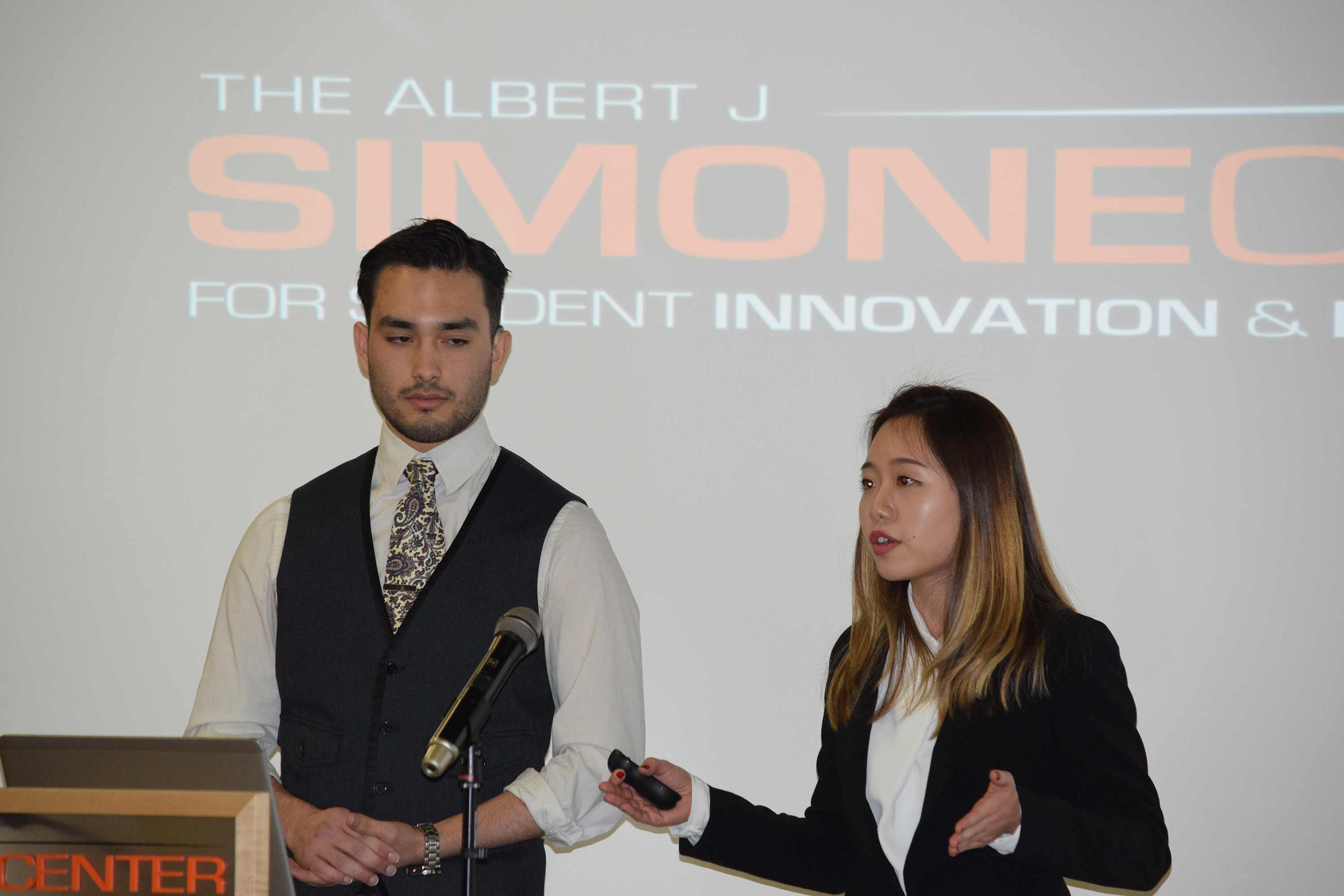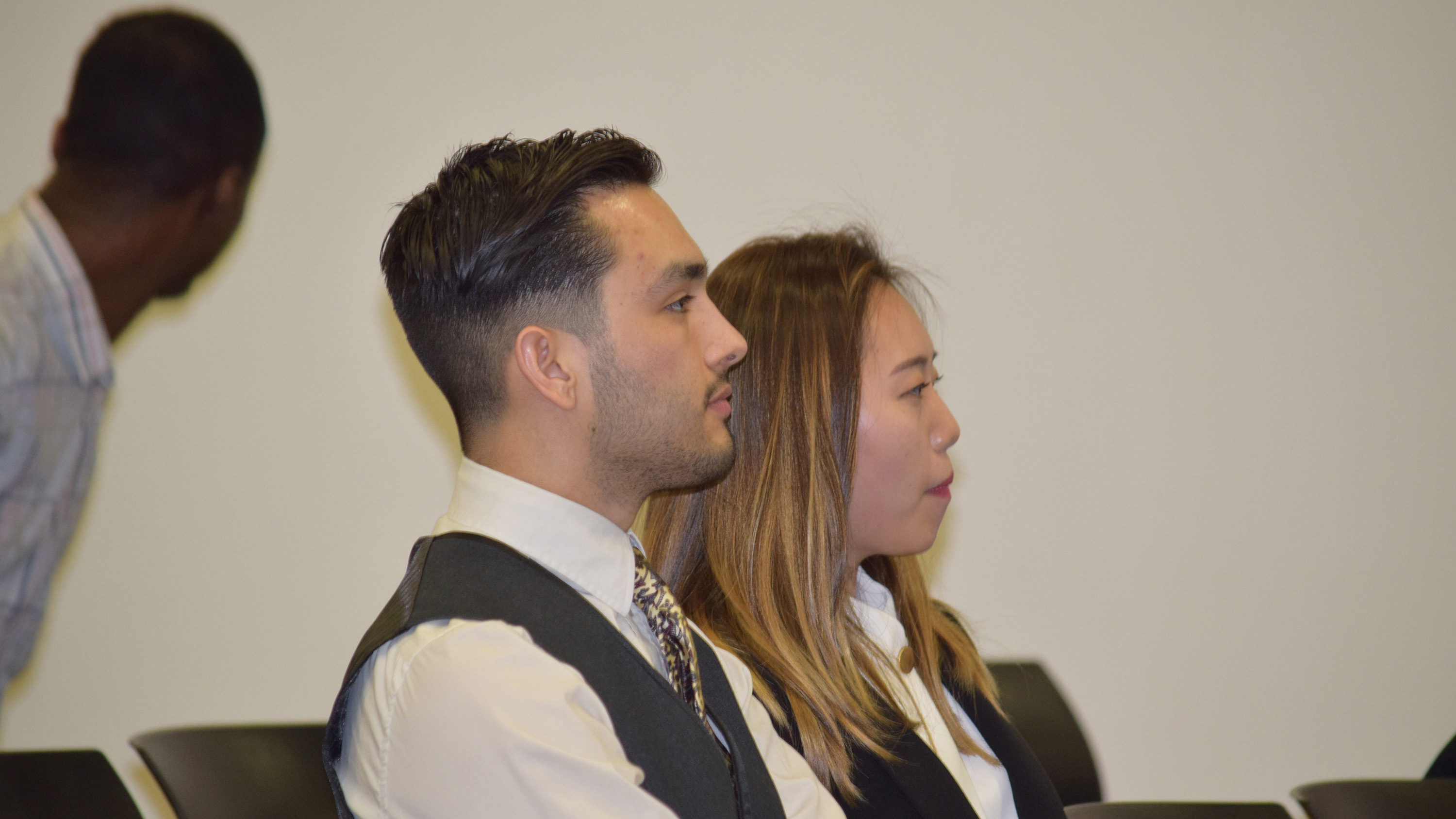Design students, business major team up to build model for success
A pair of RIT College of Art and Design students helped generate a plan that landed a third-place finish in the RIT Business Model Competition, hosted by the Simone Center.
ASL Storyteller — comprised of fourth-year students Christina Chang (industrial design), Julie Love (graphic design) and Logan Lugo (international business) — was one of five teams selected for the March 9 finals, where a panel of outside entrepreneurs judged the new business contest. All original entries were sent to judges, who then decided on the five teams that would present their business models in the finals.

For its third-place effort, ASL Storyteller received $1,500. Chang (pictured on the right in the photo) serves as ASL’s project manager and industrial designer, Love is the illustrator and 2D animator and Lugo (pictured on the left) is the marketing officer and business developer.
“The team at ASL Storyteller is definitely a successful collaboration between three different disciplines,” Chang said. “They came together to utilize their unique diverse talents and applied them to create something truly influential.
“It was invaluable experience for all of us and we would like to continue this."
The team is developing ASL Storyteller, an app with a freenium model and paid unlocks that teaches visual language to children up to 5 through a curriculum of four activities — storytelling, ASL (American Sign Language) rhythms, games and vocabulary. The trio is striving to provide a comprehensive platform for parents who are unsure of how to best start teaching children their first language.
The goal is to not only target deaf audiences, but any parent or child. As Lugo said, many parents are unaware of the long-term benefits of starting a child’s first language earlier on. He noted babies are able to visually process information before they can do so verbally, and sign language is a naturally visual language.
With sufficient revenue, the business is aiming to make a significant international impact. The greater social value of the plan is that there is an inclusion of all sign languages, for deaf audiences all over.
Due to a global research effort in improving linguistic education for all youth, ASL Storyteller also plans to partner with research agencies to provide a paid access to its networks in exchange for opt-in surveys. The hope is for users to avoid paying for full, premium options if they complete a certain amount of surveys.
“All of us were really happy that we now have some financial capital to catalyze the start of something truly wonderful, and had the opportunity to personally meet with each and every one of the judges for feedback after the competition,” Lugo said. “We can't wait to see the inclusion of different foreign sign languages and the stories that parents would tell their children each night from all over.”
Other winners
AWARE won the $4,000 grand prize as the first-place finisher in the Business Model Competition. That team was composed of Ethan Kersat (international business) and Emmanuel Dodoo (computer science).
Second place ($2,500)
GAIA: Brent Chase (biomedical engineering)
Fourth place ($1,000)
Trident Co. LLC: Adolf Akuffo-Afful
Fifth place ($500)
DADCo: Colin Fausnaught (software engineering), Joseph DiPassio (electrical engineering), John Grosh (computer science) and Dan Berg (mechanical engineering)













